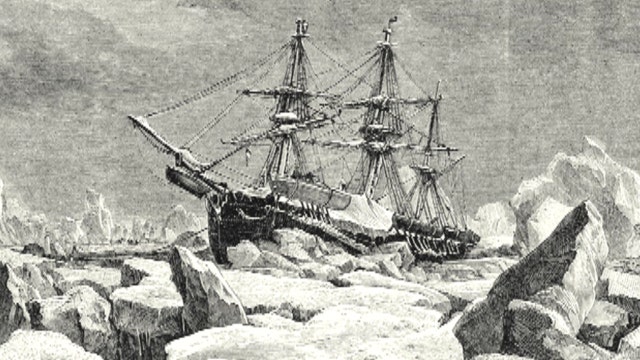Long-lost HMS Terror finally discovered
Researchers discover long-lost HMS Terror 168-years after Sir John Franklin's doomed ship wrecked
The question of what happened to the 129 crew members of the ill-fated 1845 “Franklin Expedition” that was lost in the Canadian Arctic has long fascinated historians. However, researchers at the University of Glasgow may have unearthed clues to help solve the mystery.
The British Royal Navy expedition consisted of the vessels HMS Terror and HMS Erebus, led by Rear Admiral Sir John Franklin. The ships were last seen entering the Arctic in 1845 as they attempted to navigate the final part of the Northwest Passage.
The disappearance sparked a huge search-and-rescue mission, which unearthed a handful of clues. In 1850, three ice-preserved corpses were found in the north Arctic. In 1859, the remains of the rest of the crew were discovered further south on the Canadian mainland along with a single-page document stating the ships were stuck in pack ice in 1846 and deserted in 1848.
Related:
The Erebus was discovered by Parks Canada in 2014, and on Sept. 3 of this year, the Arctic Research Foundation announced it had found the Terror in “pristine condition.” Researchers believe the discovery of both ships will give better insight into what contributed to the disaster, which has become the stuff of legend.
Often, scurvy, lead poisoning and tuberculosis were culprits on expeditions, yet, over time, but have been difficult to prove because the journals or “sick books” that recorded illness on board have never been discovered. Instead, Glasgow University researchers used records from “sick books” aboard other search ships to reconstruct the conditions the Franklin expedition endured and now believe some deaths may have occurred from respiratory, cardiovascular and tubercular conditions.
The team also proposed that the disproportionate number of deaths of Franklin’s officers was probably a result of non-medical factors such as accidents and injuries while hunting and navigating the rough terrain on foot.
“We understand from our colleagues in Parks Canada that if any of the expedition’s written records were stored securely on board then the underwater conditions are such that they may remain in a legible condition,” said Professor Keith Millar, a researcher with the project, on the university’s website. “If a ‘sick book’ has survived on one of these ships it may record the events that led to the failure of the expedition and put an end to further speculation, including our own.”









































